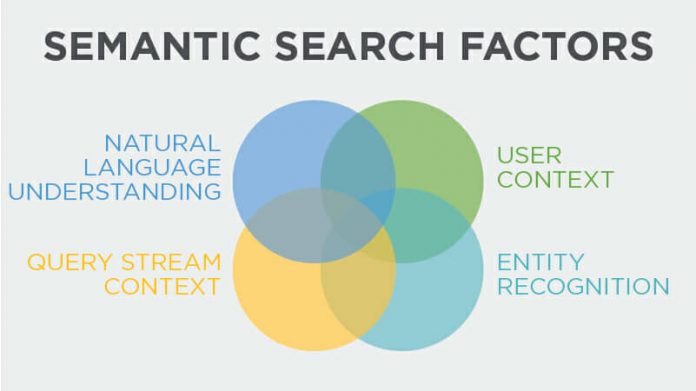Searches using Structured Data
Google recently published a patent which showed how Structured data in the form of JSON-LD might be used on a page and might cause Google to search for values of attributes of entities described in that structured data, such as what book was published by a certain author during a specific time period. The patent explained how Google could search through the structured data to find answers to a query like that. My post is Google Patent on Structured Data Focuses upon JSON-LD, and the patent it covers is Storing semi-structured data.
Action Items: Visit the Schema.org website and look at some of the example Schemas and the different types of markup examples of those. Also, consider joining the Schema.org community and joining the community mail list. There are Schema extensions which will make schema grow, and being part of the community gives you a chance to be part of that, and to learn about how it happens.
- Related Entities
A search for an entity with a property or attribute that may not be the most noteworthy, but may be known may be findable in search results. In a post about this, I used an example query about “Where was George Washington a Surveyor?” since he is most well known for having been President. The post is Related Entity Scores in Knowledge-Based Searches, based on the patent Providing search results based on sorted properties.
Action Items: it is worth doing some searches for different entities, and seeing what else is included in knowledge panels for those, such as the ones for Tom Hanks and William Shakespeare.
- Nearby Locations
I stood in front of a statue in my town and asked my phone what the name of the statue in front of me was. It didn’t give me an answer, but I suspect we may see answers to questions like this in the future (and information about stores and restaurants that we might be standing in front of as well. I wrote about how this might work in the post How Google May Interpret Queries Based on Locations and Entities (Tested). It is based upon the patent Interpreting User Queries Based on Nearby Locations. This is worth testing again, I am traveling to Italy in November, and I’m hoping it works for my trip then, so I can ask for reviews of restaurants I might stand in front of when there.
Action Items: Google will keep track of the locations of different entities (points of interest and local entities, such as businesses). It’s worth opening your phone in front of places and asking it if it knows what entity you might be in front of. I know that Google has an idea of what I am near when I take some photos because it asks me if I would like to submit my photos taken at a place or just outside of it, to Google Maps. If Google knows a location for Google Maps, it can know what is at a location for Google Search with some work. We will see how long it takes Google to start returning search results based upon locations.
- Attributes of Entities
Asking questions about facts from entities such as movies or books, and Google being able to answer such queries is a good reason to make sure Google understands the entities that exist on your web pages. I wrote about such searches in the post How Knowledge Base Entities can be Used in Searches.
It is based upon the patent Identifying entities using search results
Action Items: It is possible to ask questions about books and movies, and facts related to them. and get search results that sometimes search results, and sometimes featured snippets, or carousels. One of the best ways to learn about these may be to ask lots of questions about books and movies, such as “What town did the movie Footloose take place in? or “Who Starred in Barney Miller?














